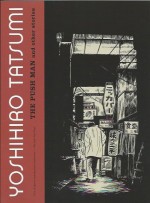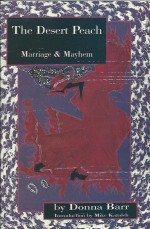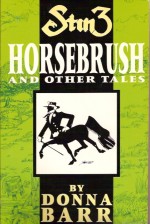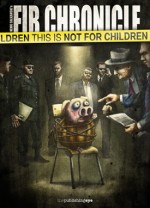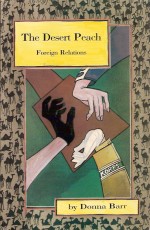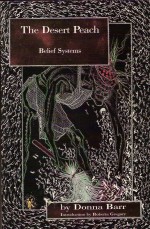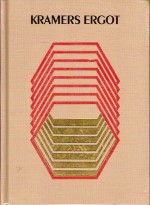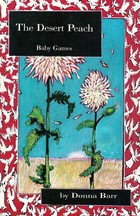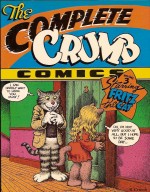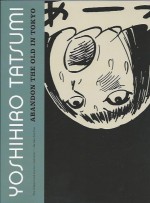
By Yoshihiro Tatsumi, translated by Yuji Oniki (Drawn & Quarterly)
ISBN: 978-1-77046-077-5
Yoshihiro Tatsumi was born in Osaka in 1935 and grew up in the TennÅji Ku district. By the time World War II began Osaka was the undisputed industrial, commercial and almost-evangelically capitalist trading-centre of the nation: a place of great wealth, fervent modernisation and nigh-universal literacy as well as vast slums, massive unemployment and crushing poverty. Osaka was the first Japanese city to introduce a welfare program for relief for the poor, modelled after the British system that began in the early 20th century…
One of 24 political wards, TennÅji Ku was named for the ancient Buddhist shrine ShitennÅ-ji (Temple of the Four Heavenly Kings) and growing up there, Tatsumi must have been constantly exposed to the glorious past, tantalising future and ever-present frustrated desperation of the poor suffering the daily iniquities of the class system.
Growing up during the nightly American bombing raids Tatsumi was obsessed by books and cartooning and devoted his life to the budding comics industry in all its forms.
His earliest successes were all-new, large graphic novels for the uniquely Japanese Kashihon or Manga lending shops (story-books purpose-made to be borrowed and returned for a pittance, rather than bought outright: cost and remuneration were necessarily low and turnover quite high) before moving into the fringes of manga magazine sales.
By 1969 Tatsumi ran a small publishing house for these tomes but the lending shops were dying out…
Since the mid fifties the author had been struggling with a new kind of manga, one that was more than simply childish entertainment, and in 1957 coined the term Gekiga or “Dramatic Pictures†to describe the adult, mature-themed, downbeat and decidedly bleak material he was crafting.
His restless pictorial questioning of affairs of the state and the state of affairs in the furiously reconstructing modern nation, as well as humanity’s breakdown in a disillusioned new Japan subjected to incessant and unceasingly building internal pressures didn’t find much popular success, but fellow manga artists slowing began to create their own serious narratives as the drive towards post-war modernism began to founder and more and more citizens began to question not just the methods but the goal itself…
After decades of virtual obscurity both at home and abroad Tatsumi was “discovered†by the West and in 2005 Canadian publisher Drawn & Quarterly began compiling collections of his vast output in hardback editions which re-presented a selection of material on a year-by-year basis.
Now the on-going annual project is at last available in deluxe monochrome softcover editions, their appeal greatly enhanced by the fact that Tatsumi’s monolithic cartoon autobiography A Drifting Life turned him into a domestic and global comics superstar, winning a brace of Eisner Awards, Japan’s Osamu Tezuka Cultural Prize as well as the regards sur le monde Award at the Angoulême International Comics Festival between 2009-2012.
After an introduction from modern manga superstar Koji Suzuki (creator of The Ring, Dark Water, Birthday and other shocking blockbusters) this second collection gathers longer works from the year 1970 and begins with the deeply disturbing ‘Occupied’ as a lonely and unsuccessful creator of children’s comics experiences digestive troubles. Forced to use public toilets he discovers a different sort of drawing and is inexorably drawn into a world where the cubicles offer an utterly different kind of relief…
‘Abandon the Old in Tokyo’ finds diligent Kenichi slowly crumbling under the pressure of his ailing intolerant mother’s constant carping demands. It’s no help that his girlfriend wants to see “his†place and eventually the weary prevaricator does something about the situation…
‘The Washer’ spends his life cleaning windows and watching powerful businessmen force themselves on young office secretaries. Things turn decidedly difficult however when the girl behind the gleaming glass is his own daughter, whilst a down-trodden factory worker’s grim, grey life only comes alive when he returns home to his hovel and his ‘Beloved Monkey’. Tragically it’s all spoiled when he lets a girl into his heart…
When old Mr. Yamanuki‘s company goes under, he cannot accept his life’s work is done and some debts have to remain ‘Unpaid’. Why and how then, does he derive such comfort and solace from that thing he does with the Collie at the Dog Appreciation Club?
‘The Hole’ sees a hiker taken prisoner by a woman hideously deformed during botched cosmetic surgery, but when the man’s divorced wife comes to his rescue, his smug arrogance seals his own fate, after which ‘Forked Road’ examines two childhood friends and the different paths their first experiences of sex made for them…
The eerily intimate episodes end with ‘Eel’ as a young sewer-cleaner sees too many parallels between the fish caught in the rake and bucket and his own existence. Some days having a disgusting, dead-end job and a callous bar-girl wife who’s delighted when she miscarries your baby doesn’t seem that different to swimming the wrong way in rubbish and excrement until you die…
Stories of sexual frustration, human obsolescence, dislocation, impotence, loneliness, poverty or the futile and vainglorious acts of rekindled pride are again depicted through rat-run mazes populated by a succession of hookers, powerless men, disaffected women, ineffectual lovers and grasping dependents and via recurring motifs of illness, retirement, injury and inadequacy in ramshackle dwellings, grimy streets, tawdry bars and sewers obstructed by things of no further value: pots, pans, people…
Concluding with another extensive ‘Q & A with Yoshihiro Tatsumi’ this second breathtaking compendium further illustrates why no serious devotee of graphic narratives can afford to miss the masterful literary skill of one of the world’s great masters of the comic arts.
Art and stories © 1970, 2012 Yoshihiro Tatsumi. Introduction © 2009, 2012 Koji Suzuki. This edition © 2012 Drawn & Quarterly. All rights reserved.

